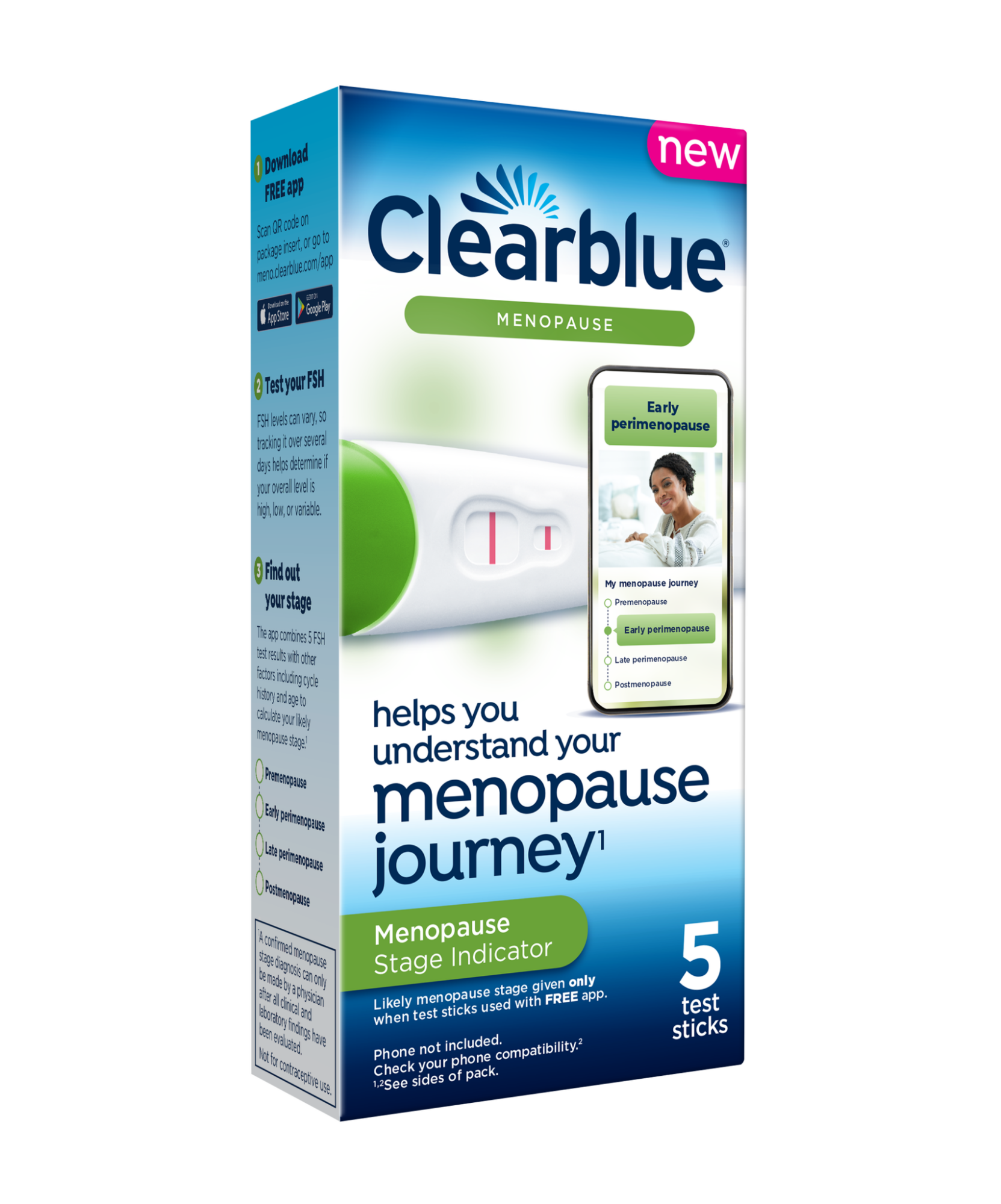And the test she took to see what was up.
Even in 2023, most people with a uterus feel depressingly ill-informed about menopause. If you’re a little warm, is it a hot flash, or is your thermostat set too high? If you’ve got an irregular period, is that a normal monthly fluctuation, or a sign that you’re heading toward a huge life change? The current guidance is that menopause is officially diagnosed after you’ve gone 12 months without a menstrual period. But that means you may be in for an entire year of confusion and discomfort before you’re officially considered “menopausal.” Given how much we now know about the human body, it’s bizarre that when many women encounter these very normal hormonal speedbumps, they’re plagued with confusion — shouldn’t someone have warned them this would be happening? We can detect pregnancy with a simple over-the-counter test within seconds, so why should menopause be any different?
Meet the ClearBlue menopause stage indicator from P&G: It works the same way as a pregnancy test — it all starts with peeing on a stick. Then, every other day over 10 days, you’ll take a new urine test to track your follicle-stimulating hormone (FSH) levels and record these results and additional symptoms using a simple app. At the end of your testing period, you’ll get a result suggesting your likely stage of menopause — either premenopause, early perimenopause, late perimenopause, or postmenopause. Just like a pregnancy test, you don’t need a prescription or a doctor’s appointment for this indicator — it’s available over the counter at most pharmacies.

Actress Gabrielle Union, who works with P&G, knows firsthand how distressing menopause symptoms can be, especially when you don’t understand what’s happening to your body. “For me, it started with night sweats,” Union shared at a recent ClearBlue event. “I’d wake up and it was like someone had poured a gallon of water all over the bed.” As Union developed more menopause symptoms, the public even began speculating about her physical changes: “I started losing my hair in little dime-sized plugs,” she remembers, “and I felt like I’d gained 27 pounds overnight. It was at a time where (the public) really wanted me to have a baby, [and people started saying] ‘Look, she’s clearly pregnant.’”

Since Union, now 51, was only 37 when she first began experiencing symptoms, it didn’t even occur to her these were signs of premature or early menopause. The sudden physical changes that come along with The Change can too often leave women feeling bewildered. According to menopause specialist Heather Hirsch, MD, a diagnosis offers women some much-needed peace of mind: “As a woman, it’s so easy to dismiss our symptoms or pain as other things. You might start thinking you’re crazy, and that’s a harmful narrative.” That’s why she sees the ClearBlue menopause indicator as a much-needed way to help women understand these changes: “Having a tool to tell you this is real, this is happening, there’s a name for this, can do wonders for a woman’s mental health.”
“We know that only a healthcare professional can diagnose menopause, but we wanted to provide a tool that can educate and empower women to have the information they need at their fingertips when they go in and have these conversations with their healthcare providers,” says ClearBlue R&D senior director Fiona Clancy, MD.
While the test is used to indicate a woman’s menopausal stage, the symptom tracker is especially helpful as women prepare for a doctor’s visit: “A lot of (my patients) say when they get into (a doctor’s office), their mind goes blank,” says Dr. Hirsch. Union agrees: “I go into the doctor’s office and I’m like, I like your painting! That’s a problem when your doctor has just a few minutes with you and relies on you to tell them your cycle history and your symptoms. Tracking your symptoms helps you to be your own best advocate.”
Union recognizes that many women still don’t feel comfortable talking about menopause, even among each other. That’s why Union has made it her goal to normalize menopause, and show that it doesn’t take away your identity as a woman: “I want you to know there’s nothing wrong with you. You are still lovable, you are still sexy, you are still a viable member of society. [A menopause diagnosis] is just some new information.”








